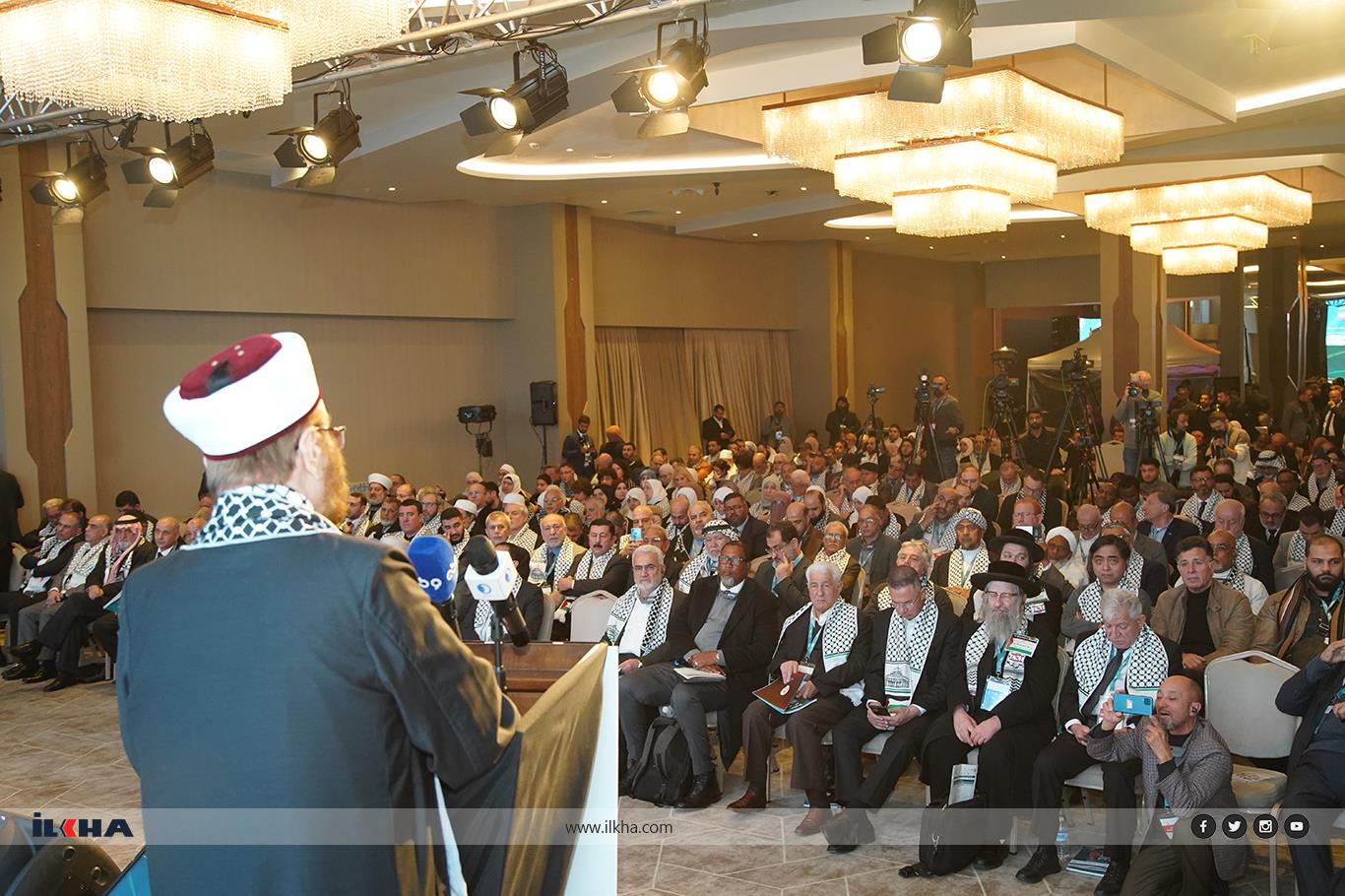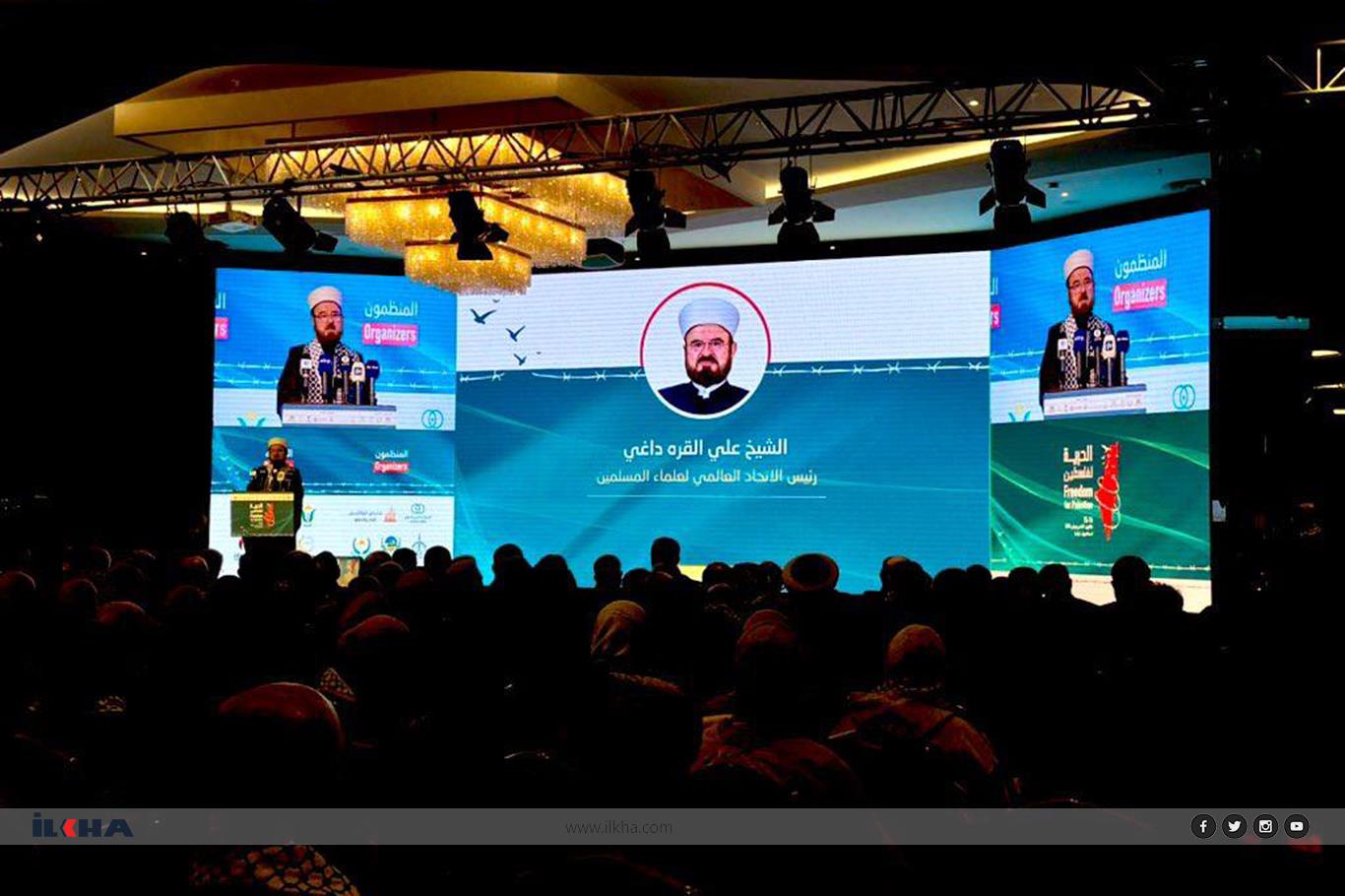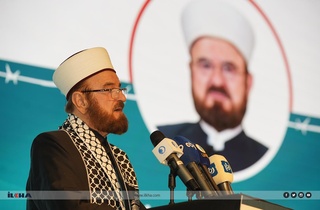President of the International Union of Muslim Scholars, Prof. Dr. Ali Muhyiddin Karadaghi, has delivered an impassioned speech at the International "Freedom for Palestine" forum in Istanbul, where he highlighted a remarkable trend observed in the Western world – a discernible turn towards Islam.
During the forum, organized with the support of various international organizations, Karadaghi addressed scholars, leaders, and politicians from across the globe. In his address, he placed a strong emphasis on the crucial role of the Muslim Ummah in supporting and advocating for the rights of Palestinians.
"We are witnessing a significant shift in the Western world, particularly in France, where 17,000 people have embraced Islam since the Aqsa Flood. This demonstrates a positive inclination towards our faith, and it is our duty to foster understanding and unity,” Karadaghi stated.
Commending the resilience and heroism of the people of Gaza, particularly in the face of challenges and aggression, Karadaghi expressed admiration for the freedom and dignity achieved by the people of Gaza through their unwavering commitment to resistance.
He described them as a symbol of inspiration for the wider Muslim community, saying, "Gaza stands tall as a beacon of hope. The people of Gaza have shown the world the true spirit of resistance, and their unwavering commitment to freedom is a source of inspiration for us all."
The scholar stressed the need for the Muslim Ummah to emulate the freedom and honor of Gaza, urging a collective effort to protect and defend the rights of Palestinians. He articulated the significance of the jihad in Gaza as a legitimate and obligatory duty, calling upon Muslim nations to unite and support the cause.
“The call to jihad is not just a duty; it is a moral imperative. We must stand united in our support for the people of Gaza, who have become the standard-bearers of resistance against oppression,” Karadaghi passionately declared.
A key point in Karadaghi's address was the call for the establishment of a humanitarian coalition to aid Palestine. He reported on the initiative to prepare 50 humanitarian aid ships, with the expectation that Muslim countries would play a leading role in protecting and supporting these vessels. This humanitarian effort aims to provide essential aid to the people of Gaza and demonstrate solidarity on an international scale.
"We must act collectively to provide tangible support to our brothers and sisters in Gaza. It is our duty to ensure that the humanitarian aid reaches those in need, and Muslim countries should take the lead in this noble initiative,” Karadaghi emphasized.
Furthermore, Karadaghi underscored the intellectual responsibility to expose the malevolence of Zionism. He emphasized the importance of engaging in intellectual efforts to raise awareness about the Palestinian cause, both within Muslim communities and on the global stage. The scholar called for increased cooperation between international law and jurists to protect Palestinian rights and emphasized the need for a strong legal defense against the Israeli occupation. Karadaghi stated emphatically: "Our battle is not just on the ground but also in the realm of ideas. We must debunk the myths surrounding zionism and present a compelling intellectual case for the rights of Palestinians."
Karadaghi reiterated the legitimacy of the jihad that began with the Aqsa Flood, asserting that it is the duty of the Ummah to fulfill its responsibilities in supporting the Palestinian cause. The scholar urged continued efforts to explain the evils of Zionism intellectually and to defend the rights of Palestinians on all fronts.
He concluded with a resounding call to action, saying: "Let us be the voices of the oppressed, and let our actions resonate with the principles of justice and humanity. The struggle for Palestine is a collective endeavor, and we must stand together in our pursuit of justice." (ILKHA)





 Güncel
Güncel
 Spor
Spor
 Dünya
Dünya
 Güncel
Güncel
 Röportaj
Röportaj
 Güncel
Güncel
 Eğitim
Eğitim
 Dünya
Dünya
 Güncel
Güncel
 Dünya
Dünya





